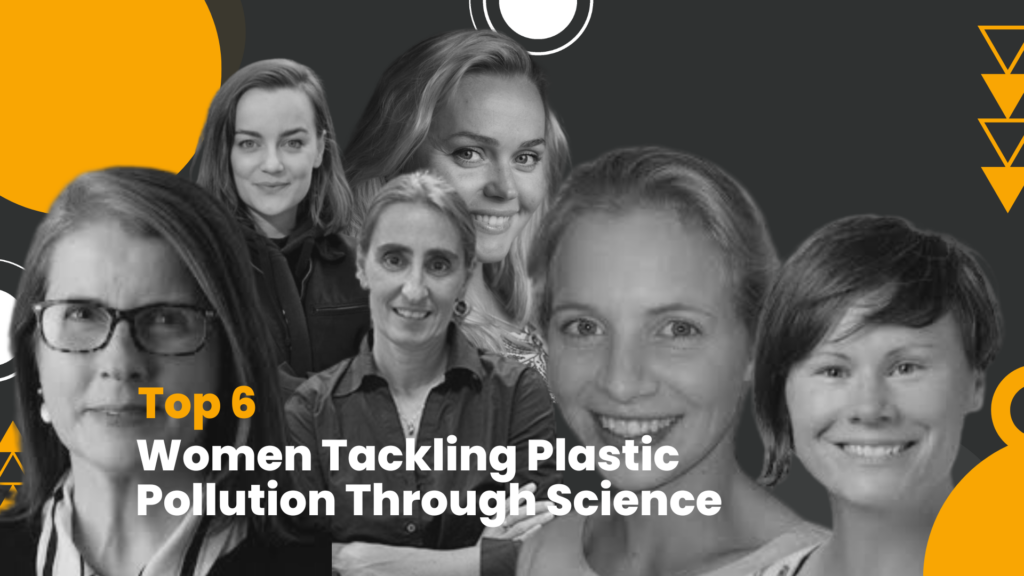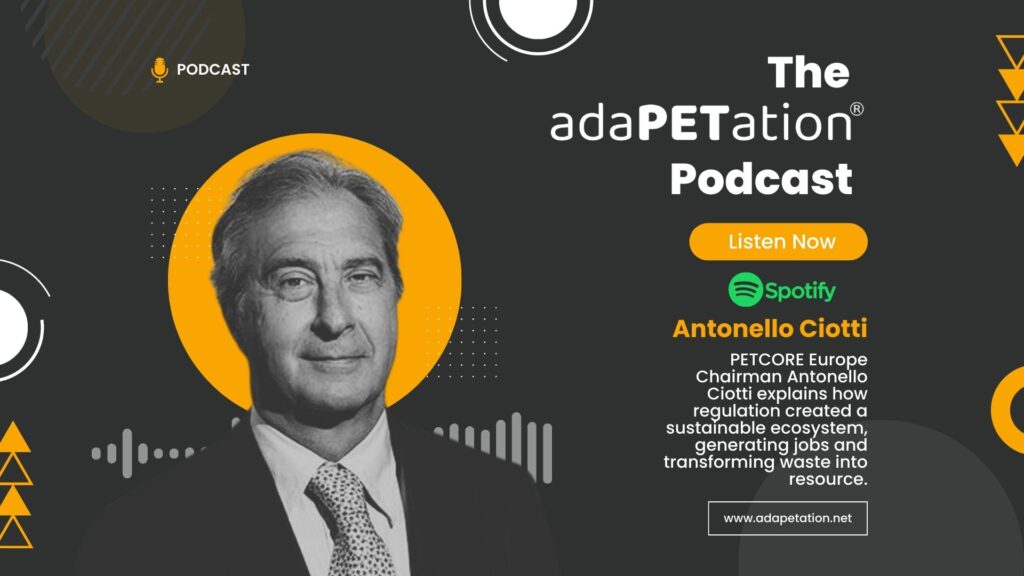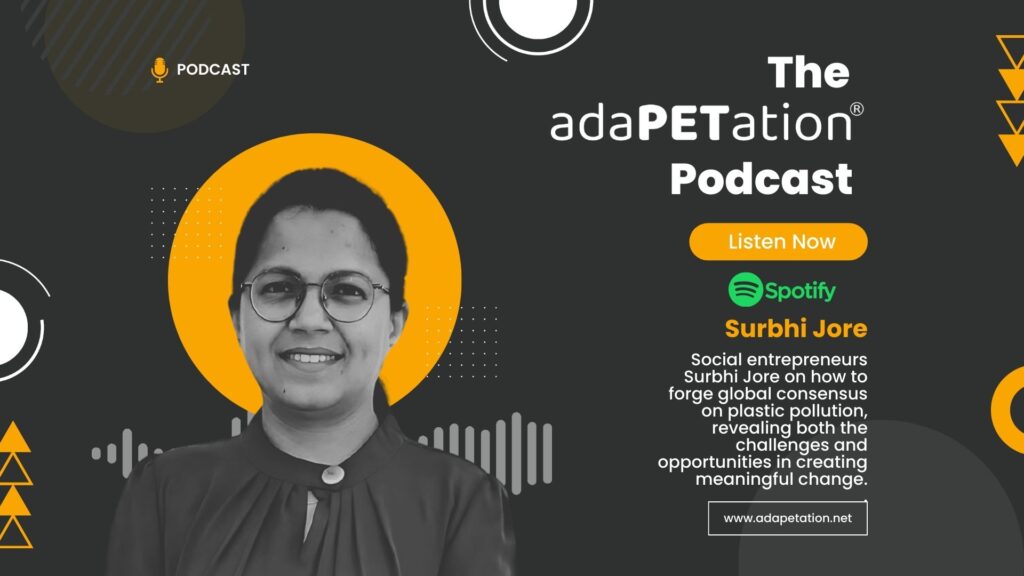
Discover how six remarkable women scientists are revolutionizing the battle against plastic pollution in this inspiring exploration of innovation and sustainability. From using insects and fungi to break down plastics to developing groundbreaking recycling technologies, these brilliant minds are leading the charge in creating a more sustainable future.

The fight against plastic pollution is one of the most critical environmental challenges of our time. While countless individuals and organizations are working tirelessly to address the issue, the contributions of women scientists are especially noteworthy.
Their innovative work is revolutionizing the way we think about plastic waste and reshaping the future of sustainable solutions. On this International Day of Women and Girls in Science, we celebrate six remarkable women who are leading the way in combating plastic pollution through groundbreaking research and technology.
1. Federica Bertocchini: unlocking nature’s degradation Power
Federica Bertocchini is a molecular biologist who has brought a new perspective to the plastic waste crisis. After earning her PhD, she began studying the ability of insects to break down durable plastics. She made an astonishing discovery—the larvae of the wax moth (Galleria mellonella) can degrade polyethylene, one of the most widely used plastics in the world. Bertocchini’s research has opened up new avenues for using biological systems, such as insects, to degrade and recycle plastics. By leveraging nature’s power, her work offers hope for more sustainable and environmentally-friendly plastic waste management solutions.
2. Joanna Sadler: engineering biology to upcycle plastic waste
Joanna Sadler, a leader in the field of biocatalysis and synthetic biology, is driving innovation in the development of sustainable technologies to tackle plastic pollution. She specializes in enzyme discovery and engineering, developing microbial cell factories that can convert post-consumer plastic waste into useful chemicals. Through her work at the University of Edinburgh, Sadler is helping create novel ways to upcycle plastics into platform chemicals, reducing the need for fossil fuels and minimizing environmental harm. Her multi-disciplinary approach blends synthetic biology, organic chemistry, and environmental sustainability, paving the way for a more circular plastic economy.
3. Katharina Unger: turning waste into valuable resources
Katharina Unger is the visionary founder and CEO of Livin Farms, an innovative company transforming organic by-products into valuable insect proteins. She has also pioneered the Fungi Mutarium project, which grows edible fungal biomass on plastic waste. This process, which involves fungi digesting plastic and overgrowing it, highlights an unconventional but powerful method to reduce plastic waste. By addressing both food insecurity and plastic pollution, Unger’s work contributes to sustainable resource management. Her leadership in insect farming has established her as a key figure in creating sustainable alternatives to traditional waste disposal methods.
4. Ekaterina Markelova: water sustainability and plastic waste
Ekaterina Markelova is a researcher who brings a unique perspective to the fight against plastic pollution, focusing on the intersection of water sustainability and the polymers industry. As the co-founder of Nanoresonance, Markelova works on chemical-free water treatment solutions using electromagnetic resonance. Her research also includes assessing the carbon and water footprints of various projects, exploring how they can help reduce the environmental impact of the plastic sector. Through her work, Markelova is advancing both the efficiency of water treatment and the sustainability of industries heavily reliant on plastic, positioning her as a key advocate for green chemistry and industrial ecology.
5. Erika Erickson: revolutionizing plastic recycling technologies
At the National Renewable Energy Laboratory (NREL) in Colorado, Erika Erickson is breaking new ground in the field of plastic recycling. Her work focuses on developing methods to degrade polyethylene terephthalate (PET), a common plastic used in bottles and other products. By turning waste materials into more valuable compounds, including new forms of plastic, Erickson is driving forward the circular economy. As part of the B.O.T.T.L.E consortium (Bioptimized Technologies to Keep Thermoplastics Out of Landfills and the Environment), she is working alongside an international team to develop breakthrough technologies that will enable more sustainable recycling processes and reduce plastic pollution on a global scale.
6. Sibele Cestari: innovating sustainable plastic solutions
Sibele Cestari, a leading researcher in polymer recycling, has focused much of her work on improving the recyclability of plastic waste. Through her post-doctoral research and her work at Queen’s University Belfast, Cestari has been developing sustainable polymeric materials made from recycled plastics. Her research challenges the traditional linear economy of “take, make, dispose” and advocates for a circular approach to plastic use. By pioneering new methods for creating building materials from recycled plastic, Cestari is not only addressing the plastic waste crisis but also promoting the idea that plastic doesn’t have to be a problem—it can be part of the solution.
Empowering women in science for a sustainable future
These six women are just a few of the many scientists who are reshaping the future of plastic waste management, advancing circular economy principles, and driving sustainable solutions to some of the world’s most pressing environmental challenges. Their work is a testament to the power of innovation and the critical role women play in solving the problems of today for a better tomorrow. As we celebrate the International Day of Women and Girls in Science, let us recognize the immense contributions of these pioneers and continue to support and encourage women in science, ensuring their voices and innovations remain at the forefront of environmental progress.
Their breakthroughs are not only essential for reducing plastic pollution but also for creating a more sustainable world for future generations. The journey toward a cleaner, greener future requires the contributions of all, but it’s clear that the leadership of women in science is a driving force in tackling the environmental challenges of our time.
LOOKING FOR MORE INSPIRATION?
The future of plastics is being redefined, and the work of these pioneering women scientists is at the forefront of that transformation. Their groundbreaking research is proving that plastic waste doesn’t have to be a problem—it can be part of the solution. Join the movement toward smarter plastic solutions. Explore their stories, support women in science, and be part of the shift toward a world where sustainability and innovation go hand in hand.
Share it
Useful Links
THE HISTORY OF PLASTIC
Throughout the history of plastic, PET has been crucial in keeping food fresh with lightweight and durable packaging solutions that have helped reduce food waste for almost a century. Learn all about the invention of plastic and the important role it has played feeding people and saving the lives of humans and elephants in the adaPETation® timeline of the history of plastic.





